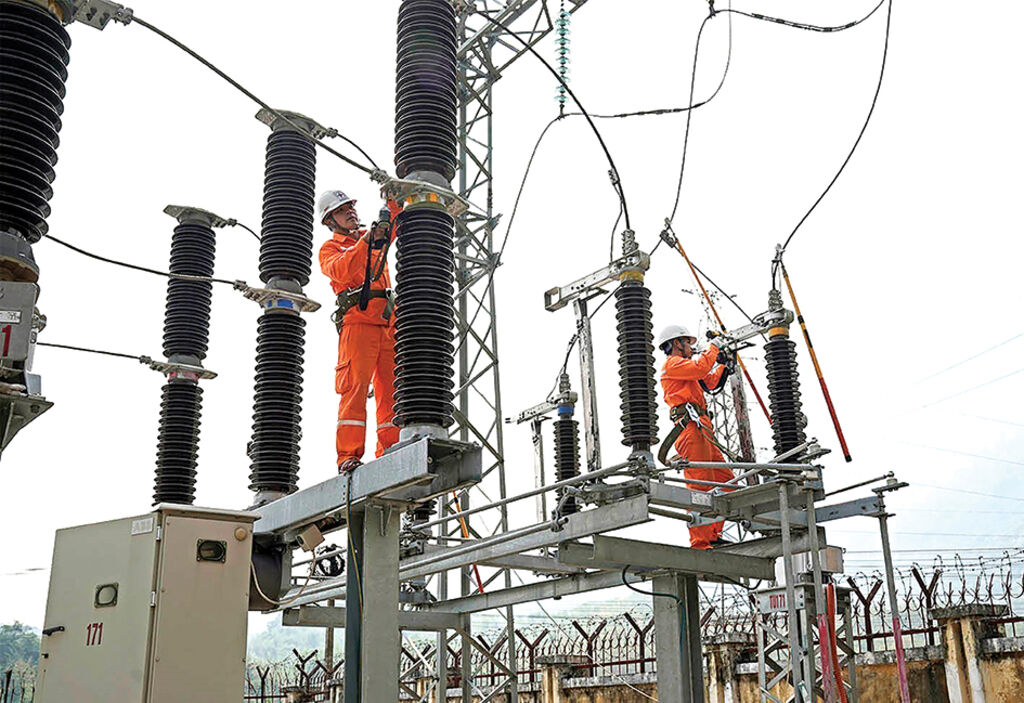 |
| Electricians from the Hoa Binh Power Corporation under the Northern Power Corporation upgrade capacity of 110kV substations in Mai Chau, Hoa Binh province__Photo: VNA |
The Ministry of Industry and Trade (MOIT) is working on revising the 2004 Law on Electricity, with a focus on orientations for power development and renewable energy development, power prices, power market, licensing of electricity activities, power system operation, power safety, and hydropower dam and reservoir safety.
Under the draft revised law, Vietnam’s power market would be developed on the principles of publicity, equality, fair competition, and regulation by the State.
The State would maintain the monopoly over the regulation of the national power system, construction and operation of major power plants extremely important to national socio-economic development, national defense and security, and operation of the power transmission grid. However, this regulation would not apply to power transmission grids constructed by non-state economic sectors.
The draft also promotes the application of scientific and technological advances in electricity activities and power consumption in order to save energy sources, improve the use efficiency of energy sources, and protect the environment.
With the adoption of priority policies for power development in rural, mountainous and border areas, and on islands, the State would attract all possible resources for investing in the construction of electricity infrastructure and accelerate the electrification.
Individuals residing in remote areas, ethnic minority communities and areas with extremely difficult socio-economic conditions would be provided with access to electricity for their daily life and production activities.
The draft devotes one chapter to providing the development of new and renewable energy sources.
Accordingly, the MOIT proposes intensified exploitation and use of new and renewable energy sources for electricity generation and implementation of preferential policies to promote investment in projects on development of power plants using new and renewable energy sources.
Renewable energy projects, including power plants, transformer stations and connection lines (except hydropower projects with an output of 30 MW or more) and new energy projects would be eligible for incentives as outlined in the investment, land, sea, taxes, fee and charge and investment credit laws.
The State would promote investment in renewable energy sources in combination with electricity storage. Newly invested, expanded or renewed renewable energy projects would be permitted to combine different renewable energy sources to increase their electricity generation output, provided that the total power generation capacity to be contributed to the national power system does not exceed the capacity approved during the national power planning stage.
The development of renewable energy projects would be based on the power load capacity and natural conditions of each region, with priority given to arid land areas and areas where agricultural development is challenging.
As for power pricing, the MOIT requires that power prices cover cost of electricity generation and business operation of power generation units. Regulations on power prices would be implemented in a public, transparent and non-discriminatory manner among power generation units. The draft also provides appropriate mechanisms for power pricing in case power is imported from foreign countries.
The Government would regulate power price adjustment and develop plans for reduction of power retail prices in case of necessity to stabilize socio-economic development.- (VLLF)









